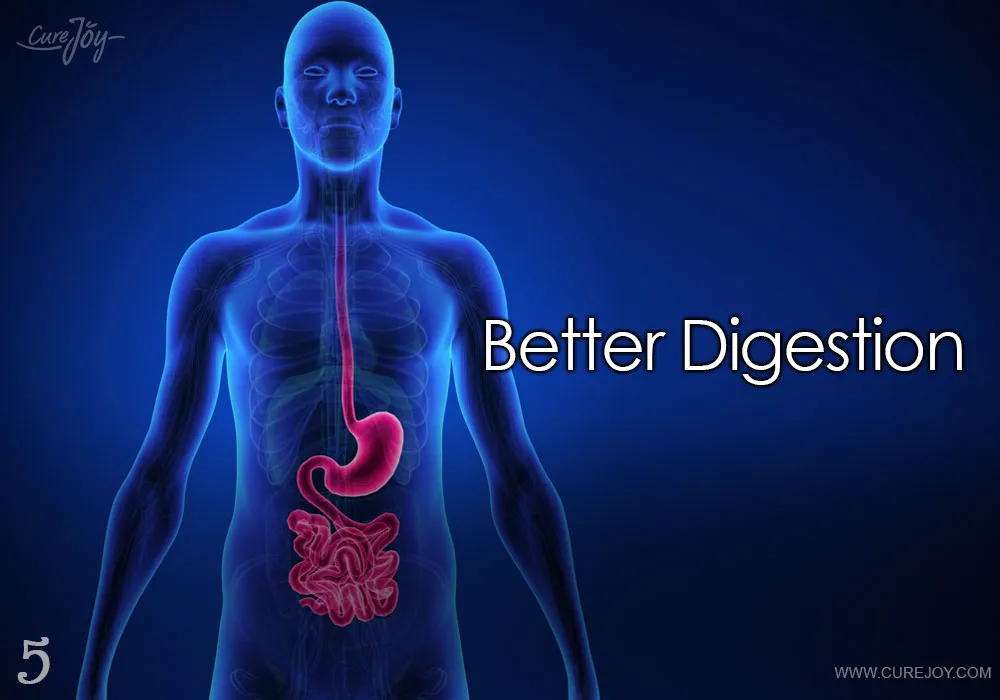Introduction
Digestive health plays a crucial role in overall well-being, impacting everything from nutrient absorption to immune function. While digestive issues are common, there are many natural strategies you can incorporate into your lifestyle to support optimal digestion. In this comprehensive guide, we’ll explore the 11 best ways to improve your digestion naturally, helping you achieve greater comfort and vitality.
Importance of Digestive Health
Understanding Digestion
Digestion is the process by which your body breaks down food into smaller, absorbable nutrients. It involves various organs, including the stomach, small intestine, liver, gallbladder, and pancreas.
Signs of Poor Digestion
Symptoms of poor digestion may include bloating, gas, indigestion, constipation, diarrhea, heartburn, and abdominal discomfort. Chronic digestive issues can negatively impact overall health and quality of life.
11 Best Ways to Improve Digestion Naturally
Eat a Fiber-Rich Diet
Fiber promotes regular bowel movements and helps prevent constipation. Include plenty of fruits, vegetables, whole grains, legumes, nuts, and seeds in your diet to increase fiber intake.
Stay Hydrated
Adequate hydration is essential for proper digestion. Drink plenty of water throughout the day to keep stools soft and promote regular bowel movements.
Chew Your Food Thoroughly
Proper chewing breaks down food into smaller particles, making it easier for enzymes in your digestive tract to break it down further. Aim to chew each bite thoroughly before swallowing.
Incorporate Probiotic Foods
Probiotic-rich foods like yogurt, kefir, sauerkraut, kimchi, and kombucha contain beneficial bacteria that support a healthy gut microbiome and aid digestion.
Manage Stress
Chronic stress can disrupt digestion by affecting gut motility and altering the composition of gut bacteria. Practice stress-reducing techniques such as mindfulness, meditation, deep breathing, yoga, and regular exercise.
Limit Highly Processed Foods
Processed foods high in refined sugars, unhealthy fats, and artificial additives can be difficult to digest and may contribute to digestive discomfort. Focus on whole, minimally processed foods instead.
Include Digestive Enzymes
Digestive enzyme supplements can help enhance the breakdown and absorption of nutrients, particularly for individuals with conditions like pancreatic insufficiency or enzyme deficiencies.
Exercise Regularly
Physical activity promotes healthy digestion by stimulating bowel movements, reducing bloating and gas, and improving overall gut motility. Aim for at least 30 minutes of moderate exercise most days of the week.
Limit Alcohol and Caffeine
Excessive alcohol and caffeine consumption can irritate the digestive tract and lead to symptoms like acid reflux, heartburn, and diarrhea. Moderation is key when it comes to these beverages.
Practice Mindful Eating
Paying attention to your food and eating in a calm, relaxed environment can aid digestion by stimulating saliva production, optimizing stomach acid secretion, and promoting efficient nutrient absorption.
Get Adequate Sleep
Poor sleep quality or insufficient sleep can disrupt digestive processes and contribute to gastrointestinal issues like constipation and irritable bowel syndrome (IBS). Aim for 7-9 hours of quality sleep per night.
Frequently Asked Questions (FAQs)
Can Digestive Supplements Help Improve Digestion?
Digestive supplements like probiotics, digestive enzymes, and fiber supplements can be beneficial for some individuals, especially those with specific digestive disorders or deficiencies. However, it’s essential to consult with a healthcare professional before starting any new supplement regimen.
Are There Specific Foods That Aid Digestion?
Certain foods, such as ginger, peppermint, fennel, and papaya, have natural digestive properties and may help alleviate symptoms like bloating and indigestion. Including these foods in your diet can support digestive health.
How Long Does It Take to Notice Improvement in Digestive Symptoms?
The timeline for experiencing improvements in digestive symptoms varies among individuals and depends on factors such as diet, lifestyle, underlying health conditions, and the severity of symptoms. Some people may notice relief within days or weeks, while others may require more extended changes.
Can Stress Management Techniques Really Improve Digestion?
Yes, stress management techniques like mindfulness, meditation, and deep breathing can positively impact digestion by reducing stress hormones, improving gut motility, and enhancing overall gut health. Consistent practice is key to experiencing benefits.
Is It Normal to Experience Gas and Bloating After Eating Certain Foods?
Occasional gas and bloating after consuming certain foods are normal, especially if those foods are high in fiber, fermentable carbohydrates, or difficult to digest. However, persistent or severe symptoms may indicate underlying digestive issues that warrant further evaluation by a healthcare professional.
Should I Consider Elimination Diets for Digestive Issues?
Elimination diets, which involve removing specific foods or food groups from your diet for a period of time, can be helpful for identifying food sensitivities or intolerances that may be contributing to digestive symptoms. It’s best to work with a registered dietitian or healthcare provider to ensure nutritional adequacy and proper guidance throughout the process.
Conclusion
Improving digestion naturally involves adopting lifestyle habits that support optimal gastrointestinal function and overall health. By incorporating the 11 strategies outlined in this guide, you can enhance digestion, alleviate digestive discomfort, and promote greater well-being. Remember to listen to your body, be patient with the process, and seek guidance from a healthcare professional if you experience persistent or severe digestive issues. With mindful eating, regular exercise, stress management, and a balanced diet, you can enjoy better digestion and improved quality of life.
- The UK’s Most Prestigious Wellness Destination Launches New Cleanse - April 24, 2024
- 7 Nutrition and Health Benefits of Okra - April 24, 2024
- Can You Cure Your Acne with Apple Cider Vinegar? - April 24, 2024

